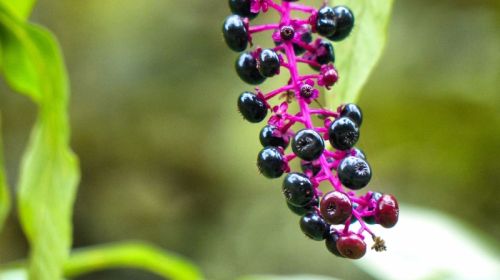The homeopathic medicine Agnus castus can be used in many ways – for menstrual disorders, menopausal symptoms or erectile dysfunction in men. You can find out here the potencies in which the active ingredient is used.
Article content at a glance:
What is Agnus castus?
The shrub plant Agnus castus, also known as chaste tree or chaste mud, has been valued as a medicinal plant since ancient times. The reddish-black berries (chaste mud fruits) in particular contain substances that…
- hormone regulating,
- relaxing and
- show pain-relieving effects.
As a dry extract, the chaste mud fruits are the starting material for the homeopathic medicine Agnus castus.
Agnus castus: Help with menstrual cramps and the desire to have children
The main area of application for Agnus castus is all complaints that occur due to hormonal fluctuations. Chasteberry is traditionally used to treat symptoms of premenstrual syndrome such as
Agnus castus can also provide relief from menstrual cramps with cramp-like abdominal pain. In addition, the hormone-regulating effect of Agnus castus ensures that the cycle is normalized in the event of irregular or absent periods.
Especially if you want to have children, therapy with monk’s pepper can effectively help ovulation to occur more regularly and predictably, so that pregnancy can occur more easily. In some cases, Agnus castus also has a positive effect in the treatment of erectile dysfunction and male impotence.
Treatment with Agnus castus can help with hormone fluctuations caused by menopause. Here, the homeopathic remedy made from monk’s pepper is used to provide supportive treatment for the typical symptoms of menopause such as hot flashes and depression.
Important: Although all homeopathic medicines have hardly any side effects, Agnus castus should not be used during pregnancy and breastfeeding to be on the safe side because of its hormone-like effects. Further information can be found in the package insert or by a doctor with homeopathic experience.
Typical potencies for Agnus castus
For self-treatment with monk’s pepper, low-dose potencies of D6 and D12 are primarily recommended. Agnus castus is also available in the pharmacy in the form of
- homeopathic film-coated tablets,
- drops or
- Globules available for ingestion.
Adults take either five globules, five drops or one tablet three times a day. Children receive three globules, three drops of the tincture or half a tablet dissolved in water. Globules based on milk sugar are particularly suitable for small children and infants.
Small children take two pellets three times a day. Infants only receive one globule at a time. In principle, however, a corresponding number of drops of the homeopathic solution or tablet portions can be administered dissolved in water.
If the administration of higher potencies, such as Agnus castus C30 or even higher, is necessary, self-treatment should no longer be carried out. Instead, the treatment should be accompanied by experienced homeopaths.
If the symptoms subside, the number of doses may be reduced to two or once a day. As soon as the symptoms have disappeared, those affected should stop the treatment.
Key symptoms for the use of monk’s pepper
Treatment with Agnus castus is recommended if the following key symptoms, i.e. main complaints, occur:
- Menstrual cramps with cramps
- Cycle fluctuations
- Menstrual disorders
- premenstrual syndrome (PMS)
- Pain and swelling in the chest
- Menopausal symptoms
- Depression
- Tiredness and feeling weak
- Erectile dysfunction and impotence
Agnus castus: remedies with a similar effect
For every homeopathic medicine tested, there is a drug picture that must be compared with the symptoms observed in patients. In order to find out the most suitable medication, it makes sense to also know the homeopathic remedies that are used for similar symptoms.
When it comes to monk’s pepper, the following homeopathic medicines are:
-
Sepia : The feminine remedy made from squid ink is also used for menstrual cramps, menopausal symptoms, depression and irritable moods. In addition, as a constitutional remedy, sepia also helps with chronic skin problems, diseases of the upper and lower respiratory tract and bladder infections.
-
Belladonna: Deadly nightshade is also considered an important homeopathic medicine for menstrual problems. Particularly if the bleeding occurs heavily and prematurely with pain extending into the back, Belladonna is considered the appropriate homeopathic remedy.
-
Damian: Damiana is also used to treat the sexual organs in women and men and has a positive effect when menstruation is absent and promotes potency and libido in cases of erectile dysfunction.
Source: www.lifeline.de



